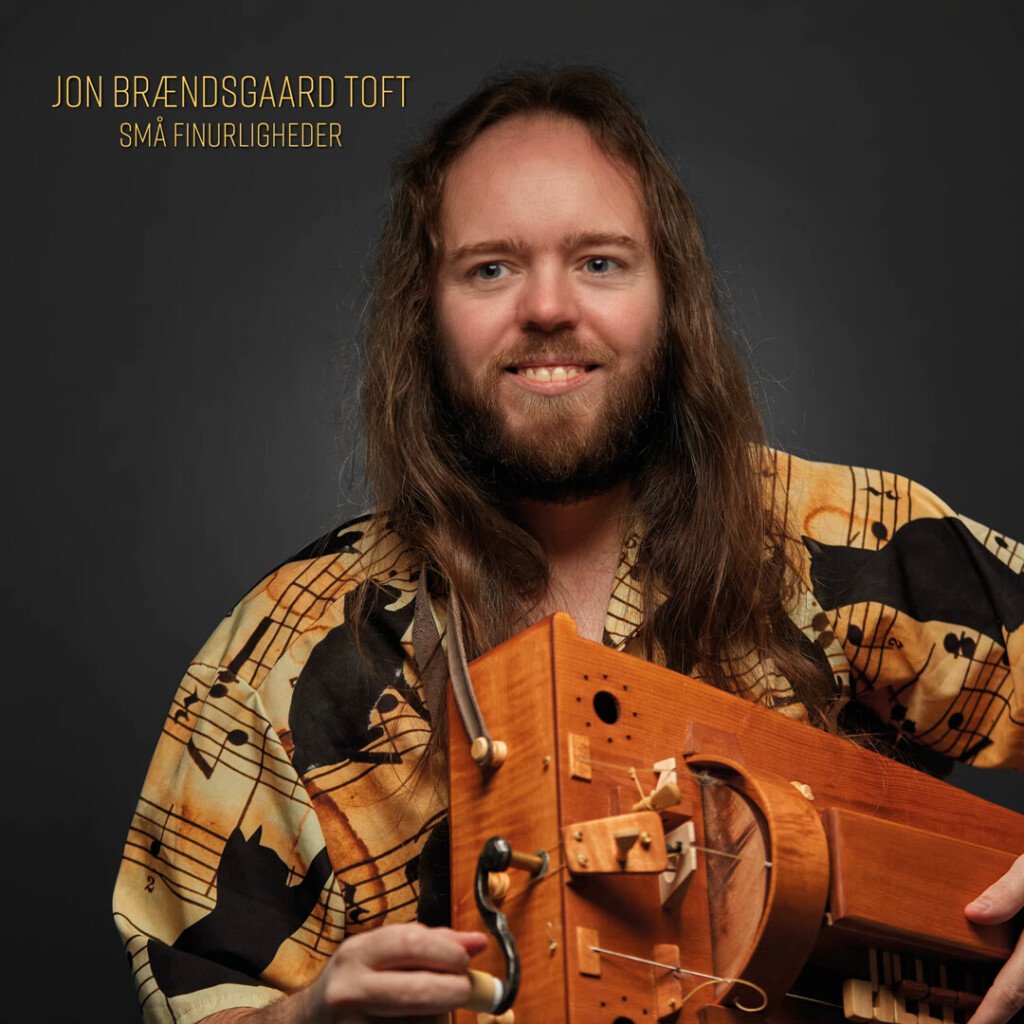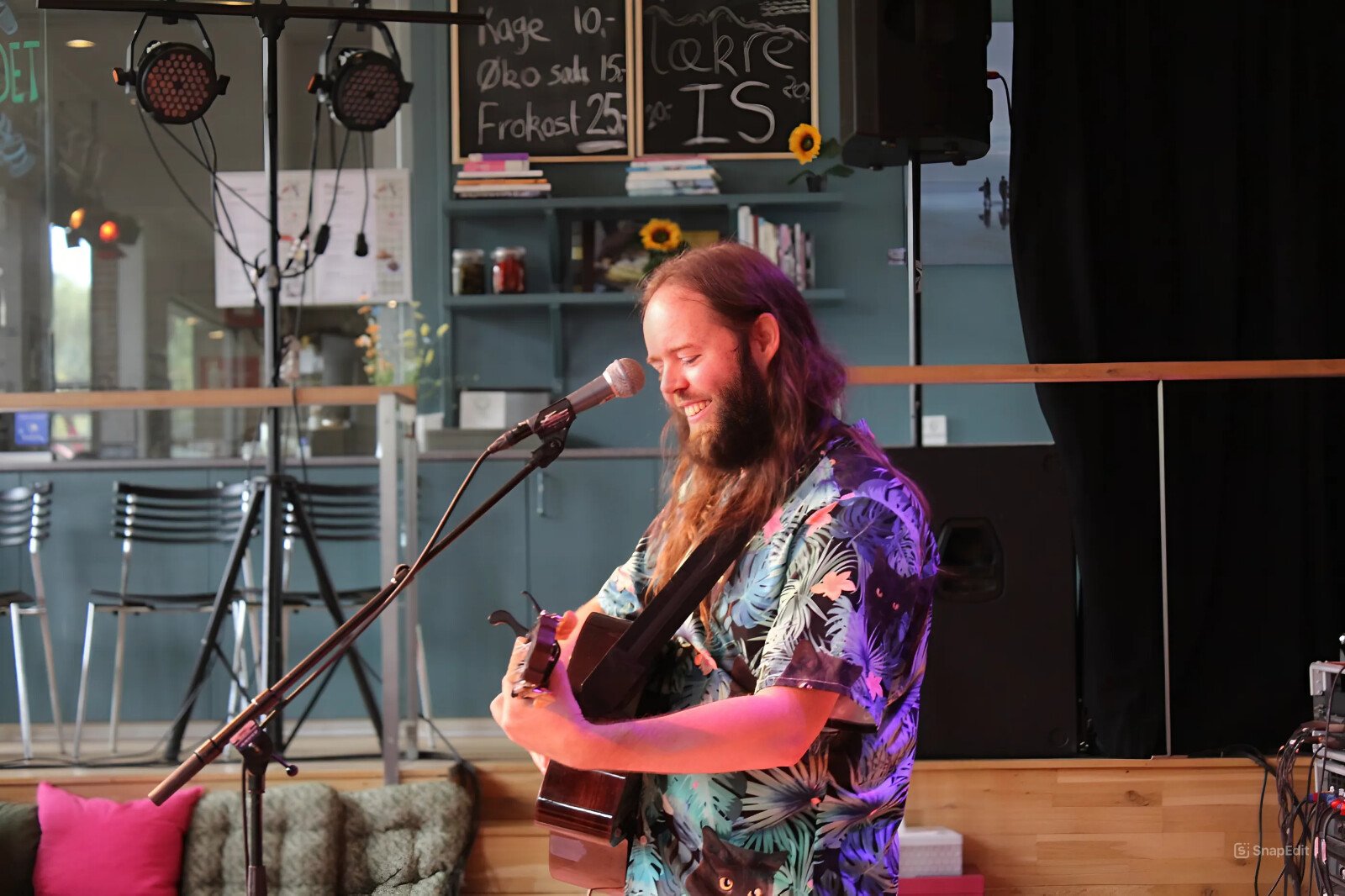Jon Brændsgaard Toft’s musical career started as soon as he was old enough to fumble around on his dad’s MIDI keyboard in the mid 90’s. While attending the Rudolf Steiner school in Aarhus, he had a brief run-in with the recorder and the violin before settling on the clarinet, while also independently taking drum lessons. Over the years he learned to play guitar, piano, banjo and various other instruments. He spent a good part of his youth filling cassette tapes and CDrs with self composed MIDI music before – after completing a Pro Tools course – releasing his first real album recorded with real instruments in 2007. Check out the exclusive Interview below:

1. Can you tell us a bit about where you come from and how it all got started?
JON BRÆNDSGAARD TOFT: I was born and raised in Aarhus, Denmark in 1986, and I have had access to musical inspiration for as long as I remember. When I grew up, my dad was playing in a The Bealtes cover band, and his record collection of 60s and 70s rock formed the foundation of my musical taste, even to this day. The first CD that I went out and purchased for myself was Headquarters by The Monkees.
2. Did you have any formal training or are you self-taught?
JON BRÆNDSGAARD TOFT: I went to a Rudolf Steiner school where to focus was on classical music. I learned to read sheet music and my instrument of choice at the time was the clarinet, an instrument I still use from time to time in my own productions. I attended drum lessons for a couple of years when I was about 12-15ish, but what really made an impact was starting to play in youth- and school bands. I know my way around a piano thanks to my dad having a MIDI keyboard I could play around with, and later I picked up the guitar as well.
I have always focused on making my own productions and albums, and in 2006 I took a 6 month course in Pro Tools and sound technique, so I could do a proper job with it.
3. Who were your first and strongest musical influences and why the name ‘Jon Brændsgaard Toft’?
JON BRÆNDSGAARD TOFT: In my time growing up I’ve experimented with a lot of different genres while making MIDI music before I settled on a progressive singer/songwriter kind of style. Musically I’m inspired by bands like Pink Floyd, Jethro Tull and Crosby, Stills & Nash.
As for the name, I never really entertained the thought of adopting a stage name. Jon Brændsgaard Toft is my given name, and everything I make is me. I’ve known people who have several releases under almost as many stage names, and I see the marketing potential of rebranding and being all fresh and new, but I think I prefer to keep things personal. My name isn’t easily pronounced outside of Denmark, but in this day and age you get far with links and copy/paste searches, so if listeners want to find me, I think they still can.
4. What do you feel are the key elements in your music that should resonate with listeners, and how would you personally describe your sound?
JON BRÆNDSGAARD TOFT: Well, I consider myself first and foremost a drummer, and as such I’ve listened to a lot of Jethro Tull, Sting, Toto and others who don’t shy away from odd and inconsistent time signatures. Sometimes when I start writing a song I’ll be like “so, what rhythm haven’t I experimented with yet”, and suddenly I’ll find myself working on a little 3 minute pop single counted in 13/8. All good fun!
Add to that, I really love harmony vocals in the style of say The Beatles and Crosby, Stills & Nash, and I often make multi voice arrangements of my songs, where I’m my own backing singer.
I also have a fascination with old folk music and world music, and I love to incorporate unusual instruments in my productions. An example could be the hurdy gurdy, which I play on a couple of songs.

5. With social media having a heavy impact on our lives and the music business in general, how do you handle criticism, haters, and/or naysayers in general? Is it something you pay attention to, or simply ignore?
JON BRÆNDSGAARD TOFT: I’ve always been out of tune with what was popular in the musical landscape. I was born in the 80s but grew up on 60s and 70s music. When my peers listened to 90s pop and dance music I simply ignored it. I never turned on a radio and expected to like what it played. So in some way I’m a naysayer myself, even though I’ve started to explore more music from my own time recently. There are several great bands and artists from the 90s and 00s that I just didn’t know about the first time around. I recently discovered Stone Temple Pilots! Great band.
As for criticism against me, I’m not too concerned. The musical landscape is so vast, that the people who don’t like what I do can easily move on to something else without too much hassle.
6. What’s your view on the role and function of music as political, cultural, spiritual, and/or social vehicles – and do you try and affront any of these themes in your work, or are you purely interested in music as an expression of technical artistry, personal narrative, and entertainment?
JON BRÆNDSGAARD TOFT: A lot of my songs are pure fantasy (and/or science fiction) but often with an anchor of reality. There’s a lot of talk right now about AI and how to use it, what it can and can’t do and how it may impact us in both positive and negative ways. So I wrote a humorous little dystopian song about AI chips being implanted in our heads at birth and how it affects the song’s protagonist. I don’t have a set agenda with my songs though. I know a guy who sings a lot about climate change and tiny houses and such, which I find admirable, but that’s not really me. I don’t stick to one theme.
7. Do you feel that your music is giving you back just as much fulfillment as the amount of work you are putting into it or are you expecting something more, or different in the future?
JON BRÆNDSGAARD TOFT: It can be a lot of lonely work because I do most of it myself. Writing, recording, mixing, mastering, promoting. I do like co-writing with others though, and a couple of times a year I join other songwriters for retreats where we do nothing but write songs for a week.
I do get a lot back when I perform the songs.
People often come up to me after a show and tell me that they love my presence on stage and that they find it easy to listing to my lyrics. That’s a nice thing to be told. Makes you wanna write more!
8. Could you describe your creative processes? How do usually start, and go about shaping ideas into a completed song? Do you usually start with a tune, a beat, or a narrative in your head? And do you collaborate with others in this process?
JON BRÆNDSGAARD TOFT: For me, what takes the longest is getting the good idea. Once the idea is there, a song can come out of it within hours. One of my friends was writing something on a piece of paper, jokingly saying that he was “printing it out” from his phone. That made me think: “Why? Doesn’t the printer work? Why wouldn’t it work?” And suddenly I was writing a song about a disgruntled printer and why printing might not be its favorite thing in the world.
I almost always write the lyrics first, or at least the first verse. Then I put music to it, to guide myself writing the next verses.
9. Creative work in a studio or home environment, or interaction with a live audience? Which of these two options excites you most, and why?
JON BRÆNDSGAARD TOFT: They both excite me, but in very different ways. I record everything at home and I have all the time in the world to do it. I love adding layers of details to the songs; the whole process of exploring what they can sound like. Sometimes I have the whole band playing in my head when I write the song, and then it’s a joy to add the instruments one by one and witnessing the creation of what was in my head.
Playing live is a completely different experience. I sometimes play with others. I have an umbrella group along with other songwriters where we arrange and play on each other’s songs, but for the most part I play alone, just me and a guitar. In that case all the fine tunes arrangements go out the window. Now it’s all about making the lyrics heard and connecting with the audience, which is also a mesmerizing experience.
10. Do you think is it important for fans of your music to understand the real story and message driving each of your songs, or do you think everyone should be free to interpret your songs in their own personal way?
JON BRÆNDSGAARD TOFT: They already do. Sometimes people find much deeper meaning in my words than I ever put in them. But I often see their point, so I’ll gladly take it. The printer song, that I mentioned earlier is a good example. The printer tells us that self-diagnosing (often in the middle of the night) is what it likes the most, much more so than printing. I was asked if it reflects self-absorbed Instagram culture. Not really, but it fits well, so I’ll take it! Maybe comments like that will help me write deeper, more multilayered songs on purpose in the future.
KEEP IN TOUCH:
FACEBOOK | INSTAGRAM | TWITTER | SPOTIFY | BANDCAMP | TIKTOK | YOUTUBE

Photo Credit: Christoffer Håkansson

